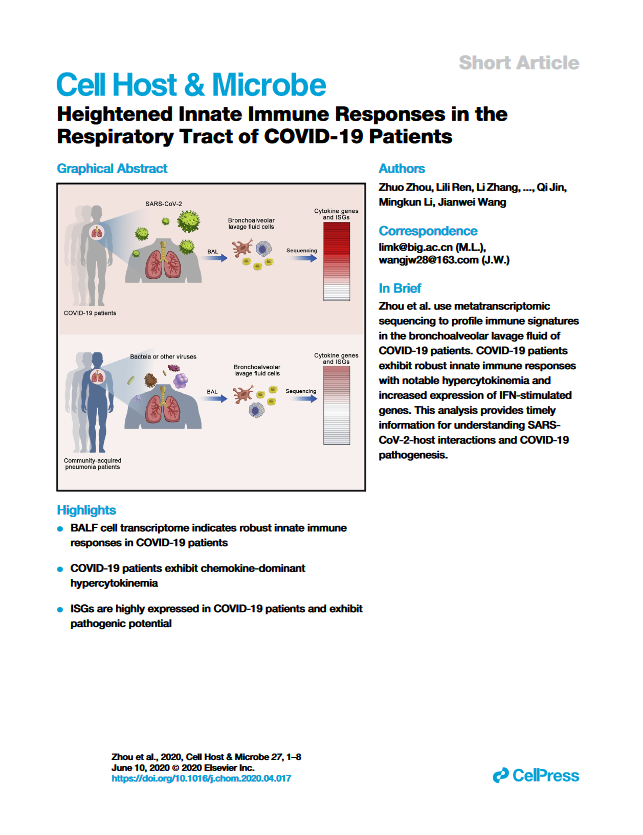09.06.2020
Heightened Innate Immune Responses in theRespiratory Tract of COVID-19 Patients
Cell Host & Microbe
SUMMARY
The outbreaks of 2019 novel coronavirus disease (COVID-19) caused by SARS-CoV-2 infection have posed asevere threat to global public health. It is unclear how the human immune system responds to this infection.Here, we used metatranscriptomic sequencing to profile immune signatures in the bronchoalveolar lavage fluidof eight COVID-19 cases. The expression of proinflammatory genes, especially chemokines, was markedlyelevated in COVID-19 cases compared to community-acquired pneumonia patients and healthy controls, sug-gesting that SARS-CoV-2 infection causes hypercytokinemia. Compared to SARS-CoV, which is thought toinduce inadequate interferon (IFN) responses, SARS-CoV-2 robustly triggered expression of numerous IFN-stimulated genes (ISGs). These ISGs exhibit immunopathogenic potential, with overrepresentation of genesinvolved in inflammation. The transcriptome data was also used to estimate immune cell populations, revealingincreases in activated dendritic cells and neutrophils. Collectively, these host responses to SARS-CoV-2 infec-tion could further our understanding of disease pathogenesis and point toward antiviral strategies.
Products used in this study:
SARS-CoV-2 (COVID-19) Spike S1 antibody [HL6] (GTX635654)
SARS-CoV-2 (COVID-19) nucleocapsid antibody [HL249] (GTX635678)
>> View article


